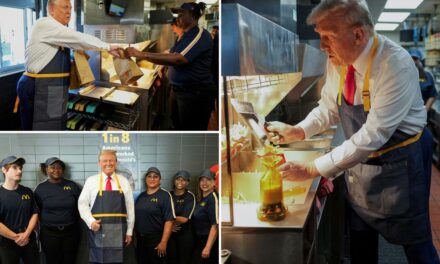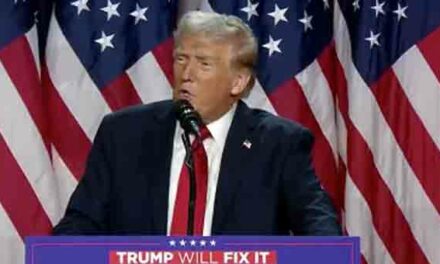We support our Publishers and Content Creators. You can view this story on their website by CLICKING HERE.
Commentary
Mexico could be pulling away from China.
Impending U.S. trade negotiations, sentiment in Washington, the campaign season, concern in Mexico over the trade deficit with China, and increasingly tough U.S. rules on importing Chinese cars and parts are causing politicians south of the border to rethink commercial relations with the world’s second-largest economy.
Sometimes, the flag follows trade rather than the other way around. If trade moves away from China, the flag probably will, too.
The new government in Mexico now claims that it wants to decrease imports from China and other countries in Asia. The administration in Mexico City is
speaking informally to U.S. businesses about ways to build industrial capacity in Mexico to substitute Mexican products for materials previously imported from China, according to a new report.
Mexico’s deputy trade minister, Luis Rosendo Gutiérrez, spoke with The Wall Street Journal for the report. He said Mexico is asking U.S. companies—including manufacturers of autos, semiconductors, aerospace, and electronics—to assist the development of Mexican industries that would produce substitutes for imports from China, Taiwan, Vietnam, and Malaysia.
Vietnam and Mexico, in particular, are suspected of facilitating the evasion of U.S. tariffs on China through transshipping, repackaging, and including extensive inputs, such as car parts, in their own fully assembled exports.
In 2022 and 2023, Chinese corporations invested more than
$14 billion in Mexico. China’s electric vehicle (EV) maker,
BYD, is reportedly trying to build an entire auto factory in Mexico. Some U.S. politicians have taken notice and could introduce legislation that would tariff these vehicles at the same rate as EVs delivered directly from China.
“We buy, and we don’t sell, and this is not commercial justice,” he said. “Mexico, like North America, needs to produce more than it consumes, as we are relying too much on basic products from China for our homes.”
Ramírez noted that Mexico imports $119 billion of goods from China annually, while exporting only $11 billion back.
The new Mexican president,
Claudia Sheinbaum, will keep Ramírez in her administration. She was elected in June, the month before Ramírez made the critical comments about China.
The prior administration of
Andrés Manuel López Obrador, known as AMLO, irked Washington for being too friendly with Beijing and other authoritarian regimes while being uncooperative with U.S. authorities on issues such as illegal immigration and the fentanyl crisis.
Sheinbaum is sometimes portrayed as an AMLO loyalist who will continue his friendly policies toward authoritarian countries. For example, she caused concern in
Washington when she invited Russian President Vladimir Putin and Venezuelan President Nicolás Maduro to her inauguration. But neither came. The new Mexican criticism of trade relations with China is an indicator that Mexico City has a new approach, at least to China.
And the United States is increasing its pressure on Mexico to move further away from Beijing. Trade negotiations in 2025 could result in a minimum percentage of North American content before an import is accepted by the United States as tariff-free.
Sen.
Sherrod Brown (D-Ohio) and other congress members have called on Mexico to “address the security threat posed by Chinese connected vehicles,” according to an Oct. 4 statement from Brown’s office. It warns that the vehicles could “collect a range of sensitive information, including sensor data and images, biometric data like fingerprints and voice recordings, vehicle location, financial information, and vehicle information.”
Some have argued that in extreme circumstances, such as a U.S.–China war over Taiwan, cars imported from China could be
hacked and then remotely triggered by Beijing to commit sabotage. Regime hackers have already inserted
malware into
U.S. infrastructure, such as water and electric utilities, at risk.
Moreover, Beijing failed to fully cooperate with U.S. counternarcotics investigations against fentanyl precursor exports to Mexican producers of deadly
fentanyl. So the Chinese Communist Party’s (CCP) intent to harm the United States is real.
To mitigate the latest risk, the
Commerce Department announced a proposed rule in September to ban Chinese and Russian electronic parts that control automated driving and vehicle connectivity.
Given the impact of U.S. national security policies on Mexico, the country should anticipate new U.S. laws on China and distance itself from the CCP and other authoritarian regimes. Americans are disentangling our own strategic supply lines from China, which should also apply to Chinese products transshipped across the Rio Grande. The new administration in Mexico City now has a choice. Let’s encourage the right one.
Views expressed in this article are opinions of the author and do not necessarily reflect the views of The Epoch Times.

 Conservative
Conservative  Search
Search Trending
Trending Current News
Current News 





